The Future of Boutique Hotels
The idea of using “boutique” to describe a hotel category originated in the USA almost 40 years ago. Since then, boutique hotels have evolved from being largely independent owner operator hotels to include branded concepts from larger hotel groups. A combination of consumer desire to seek a unique experience, the power of global hospitality groups to invest in new brands and the ability of developers and operators to secure investment has driven growth in this sector.
Over recent years we’ve seen an influx of new brands. The original boutique hotel concept was undoubtedly created through the premiumisation of smaller independent hotels, where passion for service and the desire to be unique sat at the heart of the business. Whilst many of these attributes have been incorporated in new lifestyle brands, there is debate on whether the term “boutique” has been diluted.
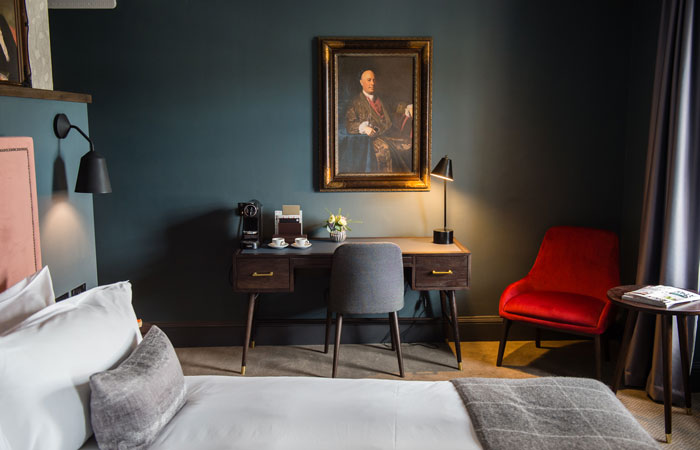
Hotel Du Vin Avon Gorge features artwork by Elegant Clutter
We asked BCFA members working in this sector to define what a boutique hotel was, and how, or if it differed from a lifestyle brand. Pretty much everyone interviewed mentioned the Malmaison and Hotel Du Vin amongst the first “true” boutique hotels in the UK but acknowledged that these brands had evolved over time. Today, both brands are owned by Frasers Property; Malmaison can be found in 17 locations in the UK and Hotel Du Vin in 19.
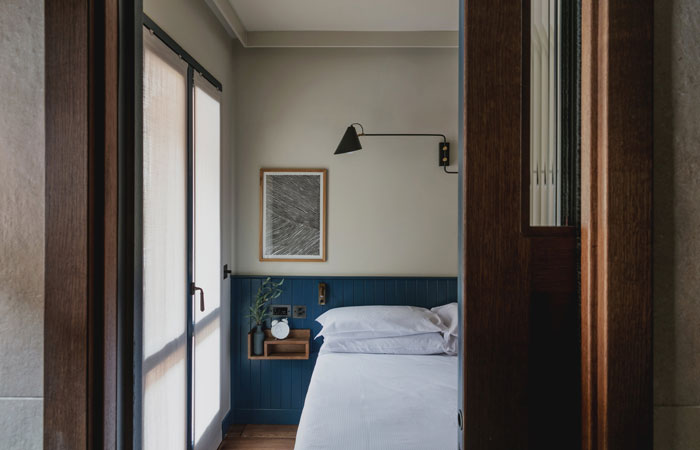
Albergo Miramonti, Italy. Interior design by Boxx Creative, features Camira fabrics, photography by Mariell Lind Hansen
The boutique/lifestyle hotel category is broad. It includes family run independent hotels such as the Albergo Miramonti in Brescia Italy (16 rooms) now run by the third generation of family, and Firmdale Hotels owned and operated by Tim and Kit Kemp with eight hotels in London and two in New York; larger independent operators such as Dakota Hotels and Bespoke Hotels’ Hotel Gotham (60 rooms) in Manchester and Ennismore’s Hoxton in Shoreditch (211 rooms) to international operators such as IHG with their Hotel Indigo brand with over 100 hotels in more than 15 countries.
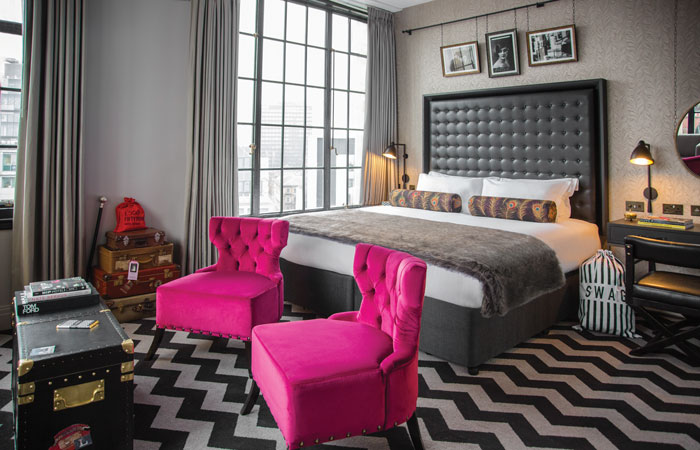
Hotel Gotham, Manchester, features fabrics by Style Library Contract
Does this variation make one type of boutique hotel lesser than the another, as all appear to be design led, value service and are destinations in their own right? Perhaps it does, as we find gastro pubs and music venues marketing themselves as having “boutique rooms” to convey the design style.
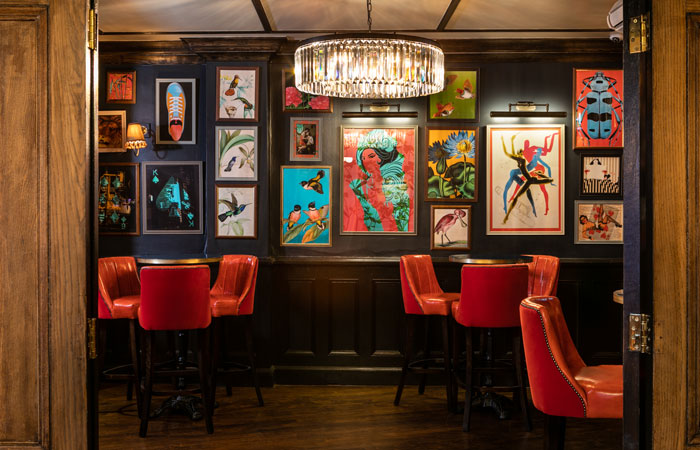
The Bedford in Balham features furniture, art and accessories from Revivalist
If boutique has been overused and become commoditised, is it any wonder that a new generation of hotels like The Pig, no longer use the term “boutique” to describe themselves. Instead they position themselves as “restaurants with rooms”, even though they display many of the original characteristics. However, the term boutique is still used by Online Travel Agents (OTA’s) and in metatags for online search as consumers understand it implies a certain design style, attention to detail and exceptional service.
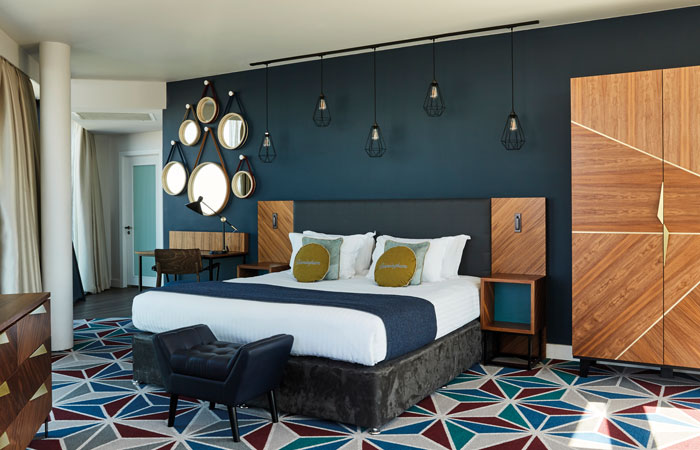
Hotel Indigo Birmingham features Curtis Furniture
So, what does the future hold post the current Covid-19 pandemic? Current hope is that the hospitality market will return at the pace it did following the SAR’s outbreak in 2003, which was around 3 months after travel restrictions were lifted. But Covid-19 is a global pandemic, so recovery will most likely be phased with domestic travel returning sooner than international. This could bode well for regions across the UK as they are more reliant on domestic travellers versus cities like London which are heavily reliant on international visitors.
Guests will also most likely return to “familiar” places, which is where boutique hotels have a distinct advantage. Boutique hotels by their definition are embedded in their local communities. This can be seen by the many uplifting examples of hotels donating food and essential supplies to key workers and the most vulnerable in society. In the South-West, The Pig Hotels are providing free eggs and vegetables from their organic kitchen gardens to neighbouring villages, while Macdonald Hotels offering free daily tea, coffee, and breakfast rolls to all NHS staff, and Bespoke Hotels and Hand Picked Hotels have been delivering delicious cakes and cream teas to local hospitals.
The latest BCFA Review on the Boutique Hotel Sector is available free to members. We discuss how this sector has evolved, the business outlook and future trends in the UK and European markets. A special addendum on the impact of Covid-19 looks at the industry response in the first quarter, and what the future may hold given the information we have available in early April 2020. Copies can be obtained by contacting Nadia Hussain on 01494 896790 or email Nadia@thebcfa.com
Contact Elegant Clutter
Contact Camira
Contact Curtis Furniture
Contact Revivalist
Contact Style Library Contract





Comments
It’s great to know boutique hotels would most probably survive after the pandemic due to their familiar ambiance that would make guests more comfortable in staying in them. Since our wedding was postponed, my husband and I are just spending our time planning ahead on where we could spend our honeymoon together. Perhaps we should start collecting some boutique hotel reviews so we could choose one by the following year.